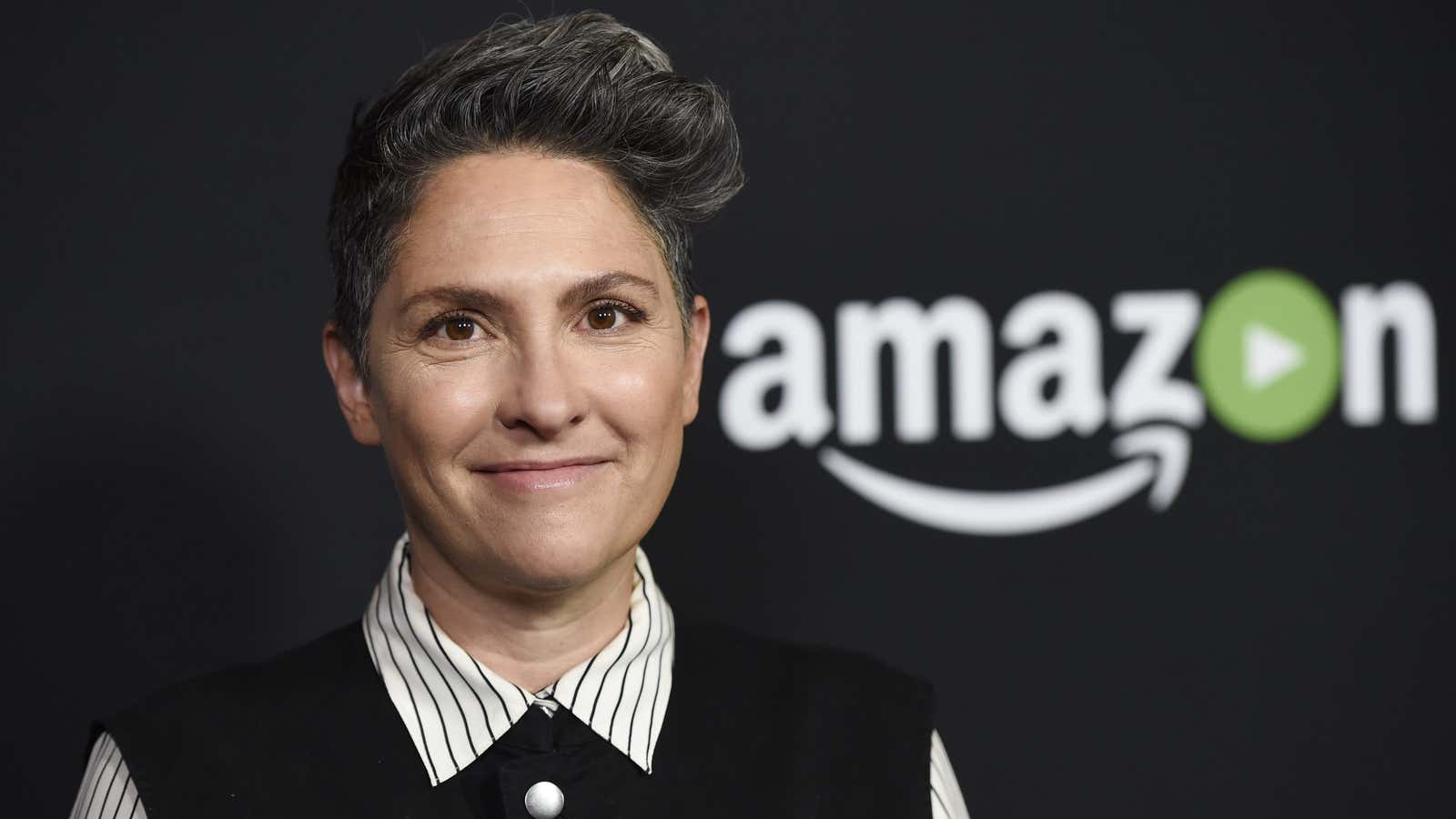Amazon may be at the top of the retail world, but in TV, the streaming service is already losing its edge. Amazon left the primetime Emmy Awards empty handed this year, while top rival Netflix and rising star Hulu cleaned house. Even Amazon series that were critical darlings and cultural touchstones, like Transparent, have reportedly failed the reach the mass appeal of shows like Netflix’s Stranger Things.
A new report by the Wall Street Journal (paywall) revealed a rather chaotic creative environment at the streaming company could be to blame. One high-profile producer who worked with Amazon described a flawed feedback pipeline that delayed productions:
Shawn Ryan, who earlier created the award-winning police drama The Shield, described his time at Amazon producing the canceled drama Mad Dogs as frustrating and confusing. Ryan said it was standard practice at other networks to receive one set of notes from executives a day after a cut of an episode was submitted. At Amazon, that process would often take more than a week and was followed by multiple requests for changes, he said, resulting in higher costs and delays.
The company pushed some top TV creators away in recent years. Showrunner Frank Spotnitz left the Amazon series, Man in the High Castle, after the first season over creative differences. And drama Goliath lost two showrunners—David E. Kelley and then Clyde Phillips—for similar reasons.
“They are in way over their heads,” Kelley told the Journal. He said he wouldn’t work with Amazon again “until their entertainment house is put in order.” It’s a shame for Amazon, considering Kelley’s miniseries Big Little Lies just won an Emmy for HBO. Amazon had reportedly passed on the project.
Meanwhile, rival Netflix has drawn top TV creators like Scandal and Grey’s Anatomy hitmaker Shonda Rhimes, who it recently signed a production deal with, by granting more creative freedom than traditional TV networks. Streaming services, in general, aren’t beholden to the overnight TV ratings that pressure shows to quickly reach a critical mass, which frees up creators to think in terms of seasons rather than episodes. And producers who have worked with Netflix said that while the company does give notes, as is standard in the industry, they’re more big picture.
“Netflix notes are the best I’ve ever gotten because what they do is they force you to be true to your own vision,” said Grace and Frankie co-creator and showrunner Marta Kauffman, speaking at a 2015 Television Critics Association panel. “Their notes are bigger questions: ‘Is this character being true to the character you wrote?’” She called it “the macro note” in Neil Landau’s book TV Outside the Box: Trailblazing in the Digital Television Revolution. And other showrunners, like BoJack Horseman’s Raphael Bob-Waksberg, have echoed the same sentiment.
To be sure, Amazon hasn’t driven away all of its producers. The Walking Dead creator Robert Kirkman recently signed a production deal with Amazon Studios. Transparent creator Jill Soloway is working on a few projects for the streaming service. And some other showrunners the Journal spoke with described a pleasant working relationship with Amazon.
Experienced showrunners are a hot commodity in the era of peak TV. And Amazon can’t afford to alienate them, especially as other tech companies like Apple and Facebook enter the already crowded TV fray boasting deep pockets and creative freedom.
